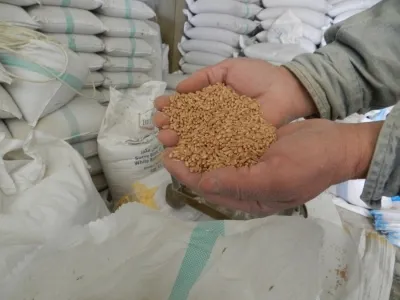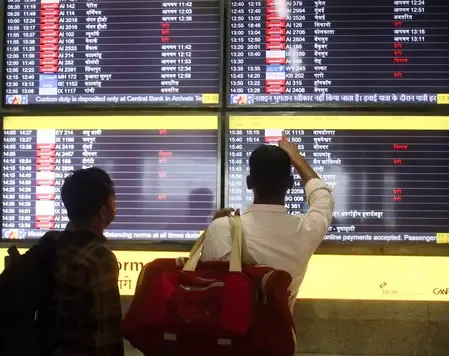Why Did the Centre Impose Stock Limits on Wheat Traders?

Synopsis
Key Takeaways
- Stock limits imposed on wheat to curb inflation.
- Wholesale traders can hold up to 3,000 MT.
- Retail limits set at 10 MT.
- Monitoring will be conducted by government officials.
- Non-compliance may lead to penalties.
New Delhi, May 29 (NationPress) The Central government has established stock limits on wheat for wholesale traders and retailers nationwide to combat hoarding and speculation, which contributes to inflation.
"To ensure food security and curb hoarding and unscrupulous speculation, the Government of India has set stock limits on wheat for wholesalers, retailers, large chain retailers, and processors in all states and Union Territories,” stated the Ministry of Consumer Affairs, Food & Public Distribution on Thursday.
The Removal of Licensing Requirements, Stock Limits, and Movement Restrictions on Specified Foodstuffs (Amendment) Order, 2025, issued on May 27, will remain in effect until March 31, 2026, across all states and Union Territories, according to a ministry announcement.
The stock limit for wholesale traders is set at 3,000 metric tonnes (MT), while for retail traders, the limit has been established at 10 MT.
For large chain retailers, the stock limit is up to 10 MT for each retail outlet, with a maximum quantity based on the total number of outlets (10 multiplied by the total number of outlets) MT. This will represent the overall stock permitted across all retail locations and depots combined.
For processors, the wheat stock limit is determined to be 70 percent of the monthly installed capacity multiplied by the remaining months of FY 2025-26.
All entities holding wheat stocks must report their stock status every Friday on the wheat stock portal (https://evegoils.nic.in/wsp/login), which will later transition to https://foodstock.dfpd.gov.in. Any entity failing to register on the portal or breaching the stock limits will face appropriate penalties under Sections 6 & 7 of the Essential Commodities Act, 1955, as stated in the order.
If entities exceed the permitted stock levels, they must adjust to the specified limits within 15 days of the notification. Officials from both central and state governments will closely oversee the enforcement of these stock limits to ensure that no artificial wheat scarcity is created in the nation, the statement further noted.
Additionally, the Central government has procured 298.17 lakh metric tonnes (LMT) of wheat as of May 27 through state agencies/FCI, which is adequate to fulfill the needs of the public distribution system and other market intervention programs.
The Department of Food and Public Distribution is vigilantly monitoring the wheat stock situation to manage prices and guarantee easy availability in the country, the statement concluded.









